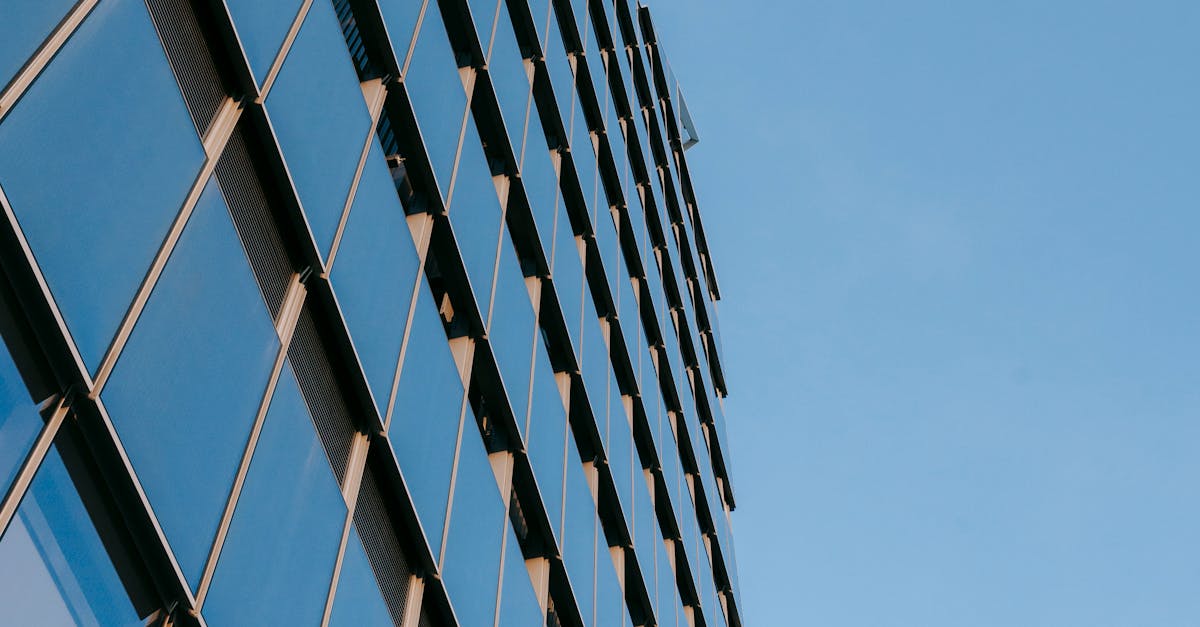
Professional Installation vs. DIY
When considering security window film installation, many homeowners face the choice between hiring professionals and tackling the project as a DIY task. Professional installers possess the expertise and tools necessary to ensure that the film is applied correctly. This option typically results in a flawless finish, offering optimal performance for the security features of the film. Professionals can also provide warranties for the installation, giving peace of mind about the durability and maintenance of the film.
On the other hand, DIY installation can be a cost-effective alternative for those willing to put in the effort. Homeowners can save money on labor costs while gaining hands-on experience. However, the process requires careful attention to detail and the right tools. Mistakes during installation can lead to bubbles or misaligned film, which can compromise its effectiveness. Weighing the benefits and drawbacks of both methods is crucial for making an informed decision about security window film installation.
Evaluating the Pros and Cons of Each Method
When considering Security Window Film Installation, professional assistance offers several advantages. Experts ensure proper application, which maximizes the film's effectiveness against impacts and UV rays. Additionally, they usually provide warranties that can give homeowners peace of mind. However, this option often comes with a higher cost, making it less accessible for those on a tight budget.
On the other hand, DIY Security Window Film Installation can be appealing due to its affordability and convenience. Homeowners have the flexibility to complete the project on their own schedule, and many products on the market are designed for easy application. Yet, a lack of experience may lead to improper installation, potentially reducing the film's protective qualities. The time and effort required for a successful installation can also be a drawback for some individuals.
Maintenance Requirements for Security Film
To ensure the longevity of security window film, regular maintenance is essential. This includes routine cleaning with non-abrasive tools and mild detergents. Avoiding abrasive cleaners or scrubbers prevents damage to the film’s surface and maintains its protective qualities. Inspecting the film periodically for any signs of peeling or bubbling also helps identify issues early, ensuring that the film continues to perform effectively.
Over time, the effectiveness of security window film can diminish due to exposure to environmental factors. Keeping the windows clean and free from debris allows the film to function as intended. In addition, maintaining the seals around the windows prevents moisture buildup, which can adversely affect the lifespan of the film. By adhering to these maintenance practices, property owners can optimize the benefits of security window film installation.
How to Keep Your Film Effective Over Time
Regular maintenance is essential to ensure the longevity and effectiveness of your security window film installation. Start by routinely cleaning the windows with a mild soap solution and a soft cloth or sponge. Avoid using abrasive cleaners that can scratch the film or affect its adhesive properties. It's also important to check for any signs of peeling or bubbling. Early detection of these issues allows for prompt repair, which can significantly extend the life of the film.
Additionally, be mindful of any changes in your surroundings that may impact the film's performance. Heavy construction nearby may introduce dust or debris that can settle on your windows. In such cases, a more frequent cleaning schedule may be required. Protecting your investment involves watching for external factors, keeping the film pristine, and making necessary adjustments based on the environment surrounding your property.
Legal Considerations for Security Film Use
When considering security film installation, it is essential to be aware of local regulations and building codes that may govern its use. These laws can dictate specifics such as permitted materials, installation methods, and the level of transparency required for safety reasons. Failure to comply with these regulations can result in fines or the need to remove improperly installed film. It is prudent to check with local authorities or consult a professional installer familiar with the legal landscape surrounding security film.
In addition to municipal codes, homeowners should also consider homeowners’ association (HOA) rules that may apply. Some HOAs have strict guidelines regarding window treatments, which can include restrictions on color and appearance. Compliance with these rules ensures that security window film installation meets not just safety needs but also neighborhood aesthetics. It's advisable to review any applicable regulations before proceeding with the installation to avoid conflicts or penalties down the line.
Regulations and Building Codes to Keep in Mind
Understanding the regulations and building codes that govern security window film installation is crucial for ensuring compliance and safety. These rules can vary significantly based on location and type of building, making it essential to consult local codes before proceeding. Compliance not only protects property owners from potential legal issues but also ensures that the film performs as expected under various conditions.
Additionally, adherence to regulations regarding safety, energy efficiency, and aesthetic standards is important. Some municipalities may have specific guidelines on the type of film that can be used, especially in historical districts or residential areas. Knowing these requirements upfront can save time and resources, allowing for a smoother installation process while maintaining the integrity of both the building and its surroundings.
FAQS
Where should security film be applied on windows?
Security film is typically applied to the inside of windows, although some products can be installed on the exterior depending on the type of film and specific needs.
Can I install security film myself, or should I hire a professional?
While DIY installation is possible for security film, hiring a professional is recommended for optimal results, as they can ensure proper application and avoid common mistakes.
What are the main benefits of using security film on my windows?
Security film enhances the strength of windows, helps prevent shattering, reduces UV exposure, and can increase privacy while maintaining visibility.
How do I maintain security film once it’s installed?
To keep security film effective over time, clean it with non-abrasive cleaners and avoid using sharp objects that could scratch the surface.
Are there any legal restrictions regarding the use of security film on windows?
Yes, there may be regulations and building codes that apply to the use of security film, so it’s important to check local laws and guidelines before installation.
